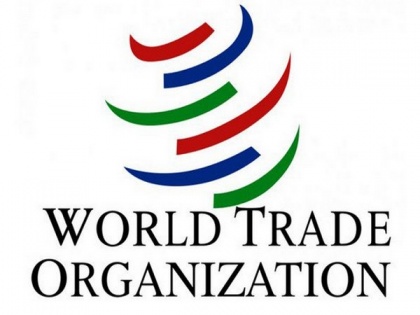WTO agreement on agriculture reflects double standards, should be amended: Former Indian envoys
By ANI | Published: February 4, 2021 10:21 PM2021-02-04T22:21:57+5:302021-02-04T22:30:03+5:30
Noting that the WTO Agreement on Agriculture is characterised by "democratic deficit" and is based on "commercial realpolitik", a group of former Indian envoys have called for amending it so that it facilitates developing and least developed countries to achieve SDG of ending hunger and achieving food security.

WTO agreement on agriculture reflects double standards, should be amended: Former Indian envoys
Noting that the WTO Agreement on Agriculture is characterised by "democratic deficit" and is based on "commercial realpolitik", a group of former Indian envoys have called for amending it so that it facilitates developing and least developed countries to achieve SDG of ending hunger and achieving food security.
In an open letter on the WTO Agreement on Agriculture, the former envoys said there is an opportunity for the US, EU and UK along with 19 members of the Cairns Group to end the "double standards that have skewed global production and markets".
They said while US, EU, UK and Cairns Group members want countries like India to liberalise their agriculture markets, allow the market forces to determine prices and limit subsidies, political groups and legislators from some of these countries express support for the farmers' protests near Delhi and criticize the government for enacting farm laws that seek to empower farmers and bring in greater market efficiency.
"Obviously you cannot have your cake and eat it too. The balance between market forces and food security/farmers's welfare is a delicate one and it is the sovereign prerogative of governments to strike that balance," the letter said.
The letter said that one WTO provision that is causing problems to countries like India that engage in public stockholding of foodgrains is that in any given year the Aggregate Measurement of Support (AMS) cannot exceed 10 per cent of the value of the production of the commodity in question.
The letter said the other big issue for developing countries and least developed countries is that if there is an import surge of a particular commodity such as wheat or sugar, countries like India want to able to impose safeguard duties to avoid the danger of their own farmers getting wiped out because of huge increase in imports.
"Both these demands are eminently reasonable but have not found acceptance by either US or EU or indeed by Cairns group which consists of countries which aggressively seeks markets for their agriculture exports."
The letter said the WTO "faces an existential crisis" and if it is to revive itself as a credible forum for negotiations, it must be seen as helping its members achieve Sustainable Development Goals.
The letter said SDG 2 is critical for India and several other developing countries.
"India can achieve the goal of food security, improved nutrition and sustainable agriculture only through public stockholding that will ensure farmers get adequate remuneration for their efforts and end hunger by distributing foodgrains to the most vulnerable sections. This is particularly important since India does not have a formal social security system or a system of unemployment dole," the letter said.
It said that for sustainable agriculture, farmers need to adopt the latest technology to diversify their production.
"The farm laws passed by the Government are the measure to strike this delicate balance. They developed countries led by the US, EU and the Cairns Group have an opportunity to be on the right side of history here. They must support the efforts of developing and least developed countries even while agreeing to amend the WTO Agreement on Agriculture to accommodate the legitimate demands of the developing and the least developed countries," the letter said.
It said that the agreement has three pillars - market access, export competition and domestic support.
"The one that has riled the developing countries and least developing countries the most is domestic subsidies since the rules as they currently stand to penalise them much more than developed countries. It is almost as if Special and Differential Treatment was extended to the developed countries and not to the ones who deserved it," the letter said.
"In as much as other WTO members were not even consulted on the issue, the WTO Agreement on Agriculture is characterized by democratic deficit and based on commercial realpolitik," it added.
The letter said India will gradually and incrementally allow the market to decide prices of agricultural produce because it is in the fundamental interest of Indian farmers.
"The WTO under the leadership of developed countries will be failing in their duty if they do not amend the Agreement on Agriculture," it said.
The letter has been signed by former ambassadors and diplomats including Mohan Kumar, Veena Sikri, Bhaswati Mukherjee, Vishnu Prakash, Preeti Saran, Lakshmi Puri and Rajeev Bhatia.
( With inputs from ANI )
Disclaimer: This post has been auto-published from an agency feed without any modifications to the text and has not been reviewed by an editor
Open in app